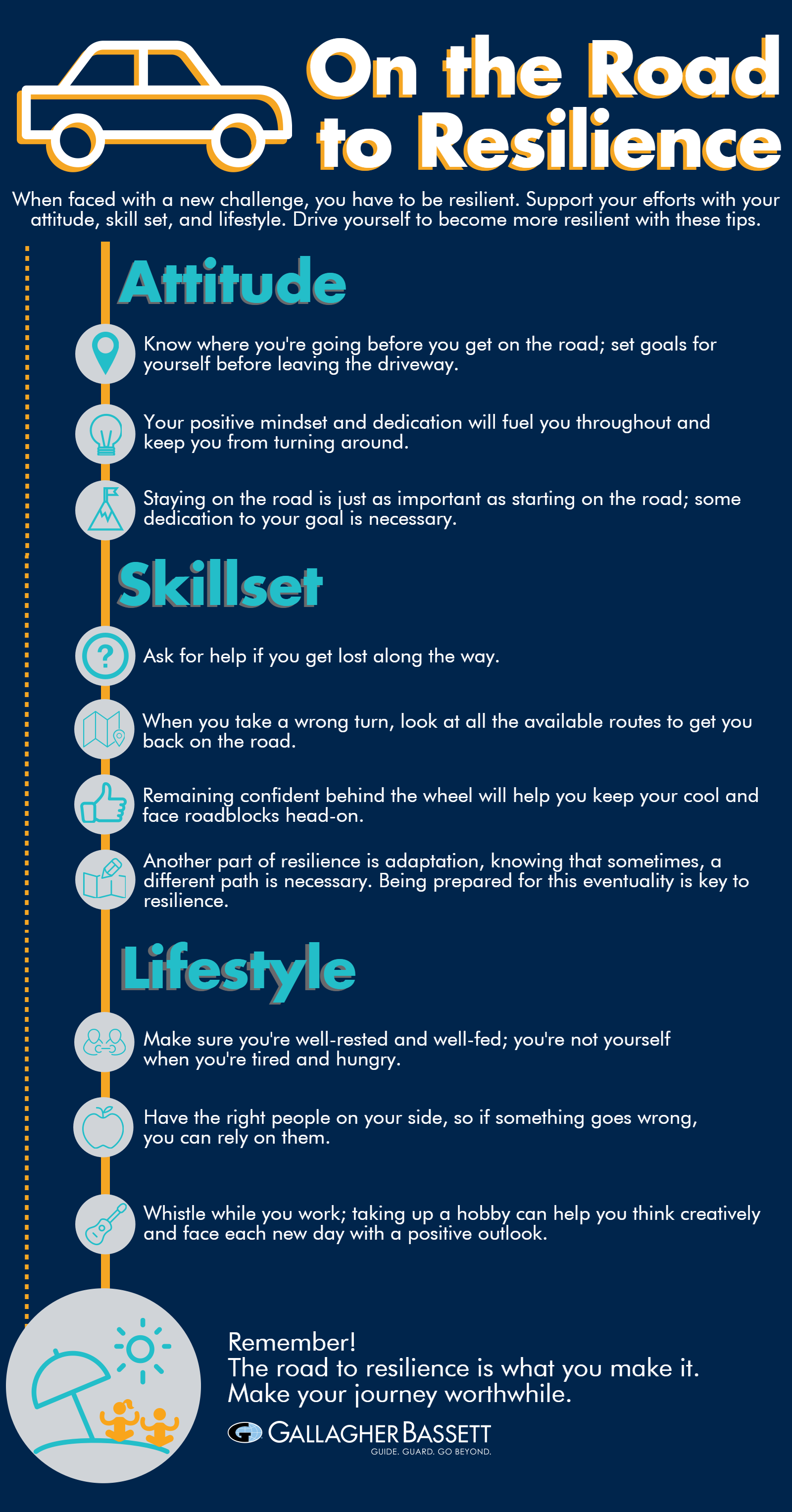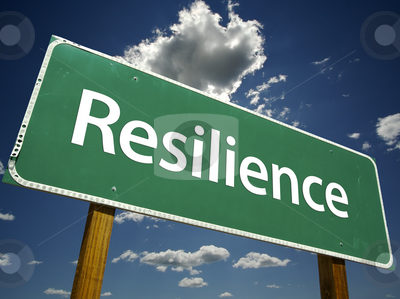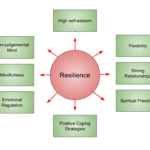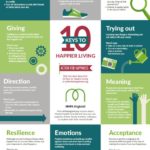The ability to bounce back from stress or adversity is important throughout life. Why is it some people can rebound from person challenges and some people cannot? Without these life skills chronic stress can cause harmful health consequences such as high blood pressure, a weakened immune system, anxiety, depression, insomnia, heartburn, indigestion, heart disease and more. According to the science, below are ten life skills we can practice to create the Road to Resilience.
Make connections. Good supportive relationships are important. Accepting help and support from those who care about you. Some people find that being active in civic groups, faith-based organizations, or other local groups provides social support and can help with reclaiming hope. Lifting others in their time of need also can benefit the helper.
Perception. You can’t change the fact that highly stressful events happen, but you can change how you interpret and respond to these events. Try looking beyond the present to how future circumstances may be a little better. Note any subtle ways in which you might already feel somewhat better as you deal with difficult situations.
Accept that change is a part of living. Certain goals may no longer be attainable as a result of adverse situations. Accepting circumstances that cannot be changed can help you focus on circumstances that you can alter.
Chip away at your goals. Even a small move in the right direction is beneficial.
Take action. Rather than being overwhelmed and shutting down, take some kind of positive action to move forward.
Self-discovery. Think about what you have learned from this adversity? What do you appreciate more now? What would you do differently next time?
Nurture a positive view of yourself. Notice your ability to solve problems and trust your instincts.
Perspective. Even when facing very painful events, try to consider the stressful situation in a broader context and keep a long-term perspective. Will it matter as much in 5 years? 10 years?
Maintain a hopeful outlook.Try visualizing what you want, rather than worrying about what you fear.
Take care of yourself. Pay attention to your own needs and feelings. Engage in activities that you enjoy and find relaxing. Exercise regularly. Taking care of yourself helps to keep your mind and body primed to deal with situations that require resilience.








